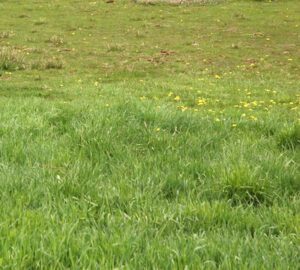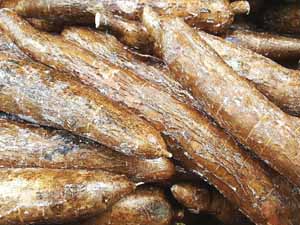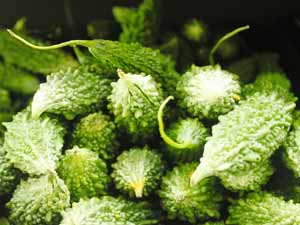Commercial asparagus farming is a very common and popular business in many countries around the world. It is used as both vegetable and medicine, but widely cultivated as a vegetable crop around the world. Asparagus has many other different local names such as Garden Asparagus, Sparrow Grass etc. And it’s scientific name is Asparagus officinalis.
Asparagus is actually a perennial flowering plant species in the genus Asparagus. And it’s young shoots are used mainly as a spring vegetable. Sources differ as to the native range of Asparagus officinalis, but generally include most of Europe and western temperate Asia. It is widely cultivated as a vegetable crop.
Since asparagus often originates in maritime habitats, it thrives in soils that are too saline for normal weeds to grow and survive. Asparagus is actually one of the first plants that greets us in springtime. It is a perennial, which means that once it gets established, the tender spears will return year after year.
Asparagus can be grown in most temperate regions, but it grows more robustly in cooler areas with long winters. The edible part of the asparagus plant is the young stem shoot, which emerges as soil temperatures rise above 10°C.
One most important thing you should know about if you are going to start asparagus is that you should not harvest it during the first couple of seasons. Asparagus plants need to be allowed to get established before you can harvest sustainably.
The patience is well worth it, though, as asparagus beds can be productive for 15-20 years or sometimes even up to 30 years. However, asparagus is highly priced in the market, and the demand is also high. So you can start commercial asparagus farming business for making money.
Nutritional Value of Asparagus
Asparagus is very nutritious and healthy. It is low in calories but boasts and impressive nutrient profile. According to healthline, just half cup (90 grams) of cooked asparagus contains;
- Calories: 20
- Protein: 2.2 grams
- Fiber:1.8 grams
- Fat: 0.2 grams
- Folate: 34% of the RDI
- Potassium: 6% of the RDI
- Phosphorous: 5% of the RDI
- Vitamin A: 18% of the RDI
- Vitamin C: 12% of the RDI
- Vitamin E: 7% of the RDI
- Vitamin K: 57% of the RDI
Asparagus also contain small amounts of other micronutrients, including iron, zinc and riboflavin. It is an excellent vegetable that you can consume as a source of essential vitamins and minerals, especially folate and vitamins A, C and K.
Health Benefits of Asparagus
Asparagus is a very healthy vegetable that has numerous health benefits. Here we are trying to describe the top health benefits of consuming asparagus.
- Asparagus is very nutritious and healthy. It is a low-calorie vegetable that is an excellent source of essential vitamins and minerals. It is especially rich in folate and vitamins A, C and K.
- Asparagus is a good source of antioxidants (including vitamins C and E, flavonoids and polyphenols). And the antioxidants in asparagus prevent the accumulation of harmful free radicals and may reduce your risk of chronic disease.
- This vegetable is a very good source of fiber and it promotes regularity and digestive health and may help to reduce your risk of heart disease, high blood pressure and diabetes.
- It is high in Vitamin B9 which is an important nutrient and it helps to reduce the risk of neural tube defects during pregnancy.
- Asparagus is a very good source of potassium. And potassium helps to lower blood pressure.
- This excellent vegetable has a number of features that make it a weight-loss friendly food. It is very low in calories, but high in water and also rich in fiber. And all this will help you to lose weight.
- Asparagus is a delicious and versatile vegetable. And it’s very easy to prepare and add into your diet. You can add asparagus to salads, frittatas, omlets and stir-fries.
Advantages of Asparagus Farming Business
Commercial asparagus farming is a profitable business. It is very also very popular and easy. Even the beginners can also start this business.
Commercial production from asparagus farming business will require some time, but it will give you high returns of your invested money once the plants are established.
However, here we are trying to describe the top advantages or benefits of starting asparagus farming business.
- Commercial or large scale asparagus farming is not a new business idea. Many people are already doing this business.
- Starting commercial asparagus farming business is very easy and simple. Even the beginners can also start this business.
- It’s very easy to make good profits from this lucrative business, and many people are already doing this business.
- It’s an established business, so you don’t have to worry much about starting and operating this business.
- The asparagus plants are very hardy and strong, and growing them is very easy. These plants generally require less caring and other management.
- Capital requirement in commercial asparagus farming is relatively less. But the returns are high. But it will take some time to establish.
- Both demand and value of asparagus in the market are very high.
- Marketing asparagus is very easy. And you can easily sell your products in any nearest market.
- As it is a profitable business, so it can be a good employment source for the people, especially for the educated but unemployed people.
- Asparagus is a very healthy and nutritious vegetable. And you can enjoy fresh asparagus if you start your own asparagus farming business.
How to Start Asparagus Farming Business
Starting commercial asparagus farming business is relatively easy if you follow step by step guide for growing asparagus. It’s very easy and the beginners can also start this business.
Asparagus is a perennial plant and you don’t have to plant asparagus each year. But you can harvest for many years once the plants get established.

However, here in this guide, we are to describe more about starting and operating a commercial asparagus farming business from planting, caring to harvesting and marketing.
Site Selection
Actually, the asparagus plants can be grown in wide range of soil types and soil conditions. But well-drained soil which is rich in organic matter is considered good for commercial asparagus cultivation.
pH range between 6.5 and 7.5 is considered ideal for growing asparagus. Liming should be done if the soil is more acidic in nature. And consider creating raised beds on heavy soils.
Land Preparation
Carry out deep ploughing about 20 cm to 25 cm deep followed by 2-3 harrowing after few days. Remove all the weeds from previous crops and do proper leveling of the soil.
Prepare about 45 cm broad ridges for plantation leaving 20 cm furrow space as a channel for watering/irrigation.
Climate Requirement
Asparagus can be grown easily in sub-tropical and sub-temprate agro-climatic regions up to 1300 meters.
Varieties/Cultivars
Choosing the right variety is very important for getting good production and also for making good profits. There are hybrid and local non-hybrid varieties available.
Contact with your local nursery or horticulture department for proper cultivar. You can also consult with some existing farmers in your area for having good recommendations.
Propagation
Asparagus can be propagated through crowns or seeds. Very good quality crowns can be selected from reputed nursery and transplant in the field.
However, asparagus can also be grown from seeds. Local suitable high yielding all-male hybrid variety seeds should be selected for sowing.
Purchase Seeds/Crowns
As we have mentioned above, asparagus is propagated through both crowns and seeds. So purchase either crowns or seeds from any of your nearest suppliers.
Planting
The asparagus seeds should be sown in the month of April in raised beds at 5 cm apart to faciliate decay of it’s hard seed coat by the time monsoon enters.
Germination generally starts within 7 to 10 days after the first shower of monsoon in June month.
Then the seedlings should be transplanted on ridges at 60 cm x 60 cm apart and provide bamboo stakes as part of training.
Vegetative propagation is by division of rhizomatous disk present at the base of the aerial stem. The rhizomatous disk develops several vegetative buds around the aerial shoots.
The disk is divided in such a way that each piece possessed at least 2 buds along with 2 to 3 tuberous roots.
Then pieces are planted conversing the buds with 1 cm of soil followed by light irrigation. The sprouting should start in 8 to 10 days after plantation.
Planting Season
Rainy season is considered best for planting asparagus. June-July is very good time for planting.
Caring
Asparagus plants generally require less caring and other management. Although, taking additional care will help the plants to grow well and produce more.
Fertilizing
You can add both chemical and organic fertilizers for growing asparagus. But in case of growing them for medicinal purpose, don’t provide them with any chemical fertilizers and pesticides.
You can apply garden compost, cow dung, green manure, vermi compost or well decomposed organic manure.
You can use some chemical fertilizers for commercial asparagus farming. Contact with your local horticulture department for more information.
Watering/Irrigation
Watering or irrigation requirement depends on the soil type, climate and season. You don’t have to provide irrigation during monsoon. Actually, irrigation should be given after monsoon is over.
Asparagus crop requires 2-3 irrigation in winter season and 2 irrigation per month in summer season. Ensure to provide good channel to drain out water in case of heavy rains.
Mulching
Mulching helps to retain moisture into the soil. It also helps to prevent weeds. Use organic materials for using as mulch.
Weeding
Manual weeding will be effective. You can control the weeds manually from your field.
Training
To avoid the top-growth breaking in windy climate and damaging the crowns, use stakes and garden twine to make a fence either side of the row for supporting the crop.
Pests & Diseases
Aphids, Cutworm, Armyworm, Rose Chafer, Asparagus Miner, Beetle, Root and Spear Rot, Phytophthora Crown, Root and Lower Stem Rot, Purple Spot, Rust and Fusarium Crown are the common pests and diseases found in asparagus farming.
Contact with your local horticulture department to identify these pests, diseases and control measures.
Harvesting
You should not start harvesting in the first 2 years after planting. You can start harvesting spears in the 3rd year from mid-April for 6 weeks.
Harvesting can be carried for 8 weeks from mid-april in the subsequent years.
For harvesting, cut individual spears with a sharp knife below the soil when they are no more than 18 cm tall.
Harvest every 2 to 3 days in warm weather for the best quality spears. The roots of the plants should be dug-out and peeled off with the help of sharp knife immediately after harvesting.
Yield
It’s very tough to tell the exact amount, because it depends on numerous factors such as cultivar, soil type and also farm management practices. But an average yield of 5 to 6 tonnes of dry roots can be obtained.
Marketing
Marketing asparagus is very easy and simple. Both demand and value of asparagus are very high in the market. You will be able to easily sell your products in the local market.
These are the common steps and ways for starting and operating a successful asparagus farming business. Hope this guide has helped you! Good luck & may God bless you!






I am a farm entrepreneur cum Researcher in Agriculture Breed/species development in Nepal and like to support Asparagus marketing in Nepal. we need some or basic techniques and methodology in seedling productions, farmings as well processing/sales & supply in our markets.plz inform and support us for promotion of this farming in Nepal. we are starting this farming from this year as 1st plantation.thank you.